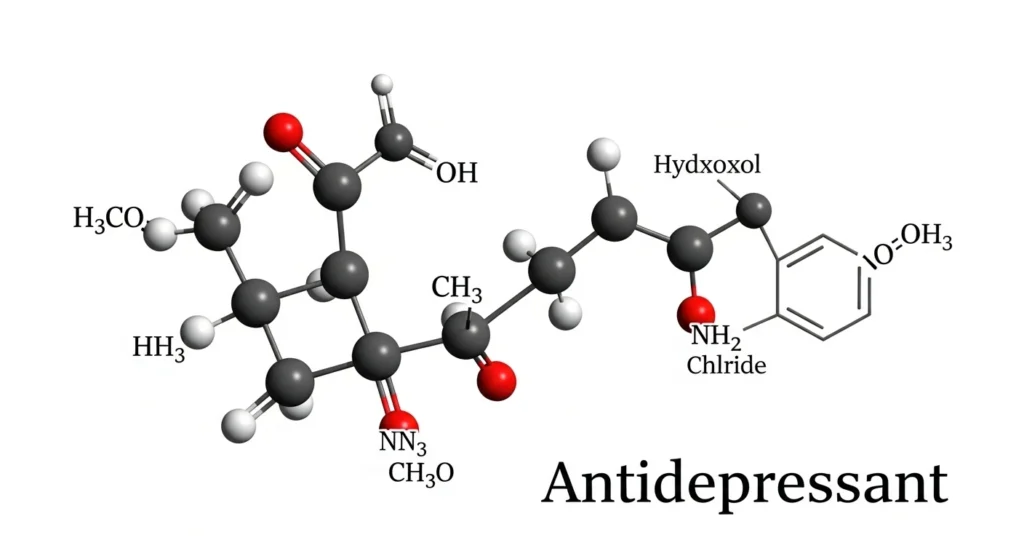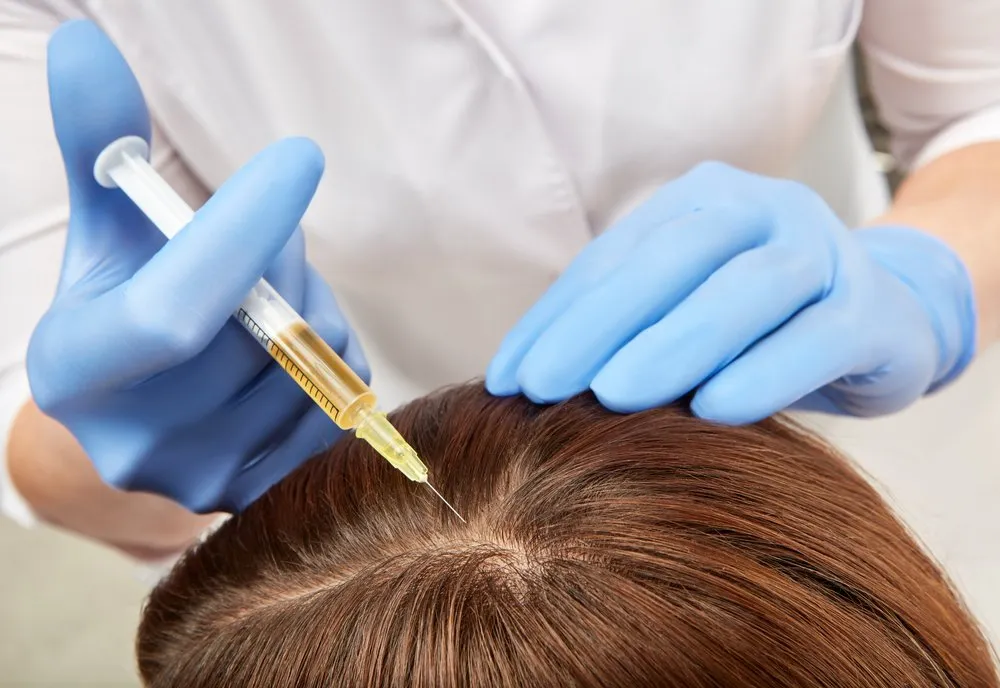If you’ve recently started taking sertraline (also known by the brand name Zoloft) and noticed excessive hair shedding, you might be wondering, Does sertraline cause hair loss?
In this article, we’ll break down what the science says, how common this side effect is, and what steps you can take. You’ll also learn about hair loss types, when to see a doctor, and ways to protect your hair health while managing your mental well-being.
Let’s help you get the clarity and expert guidance you need.
What Is Sertraline (Zoloft) and Why Is It Prescribed?

Overview of Sertraline as an SSRI
Sertraline is a selective serotonin reuptake inhibitor (SSRI), commonly prescribed for a range of mental health conditions. SSRIs work by increasing serotonin levels in the brain, which helps regulate mood, anxiety, and emotional stability.
Common Uses – Depression, Anxiety, OCD, PTSD
Sertraline is FDA-approved to treat:
- Major depressive disorder (MDD)
- Generalized anxiety disorder (GAD)
- Obsessive-compulsive disorder (OCD)
- Post-traumatic stress disorder (PTSD)
- Panic disorder
- Social anxiety disorder
How Sertraline Works in the Brain
It slows the reabsorption of serotonin, a neurotransmitter that influences mood, appetite, and sleep. By maintaining higher serotonin levels, sertraline helps stabilize emotions, but like any medication, it can also produce unintended side effects.
Does Sertraline Cause Hair Loss? What the Research Says
Hair Loss as a Rare Side Effect
Hair loss is not among the most common side effects of sertraline, but it has been reported. According to the FDA and other health agencies, drug-induced hair loss is possible with SSRIs — including sertraline — though it’s considered rare.
Clinical Studies and Case Reports
- A 2005 case study published in the Journal of Clinical Psychiatry reported telogen effluvium (a form of temporary hair loss) in a patient after starting sertraline.
- A 2020 review in Dermatologic Therapy noted that SSRI-induced hair loss is underreported and often reversible once the medication is stopped or adjusted.
How SSRIs May Disrupt the Hair Growth Cycle
Sertraline may trigger telogen effluvium, where hair follicles prematurely enter the resting (telogen) phase. This can result in increased daily shedding, usually 2–3 months after starting the medication.
How Common Is Hair Loss from Sertraline?
Reported Incidence in Medical Literature
Hair loss due to sertraline is not consistently tracked in large clinical trials, so exact numbers are unknown. However, post-marketing data suggest it affects fewer than 1% of users.
Comparison With Other SSRIs
Other SSRIs like fluoxetine (Prozac) and paroxetine (Paxil) have also been linked to hair thinning. There’s no clear evidence that one SSRI is significantly more likely than another to cause hair loss, but individual reactions vary.
What Type of Hair Loss Can Sertraline Trigger?
Telogen Effluvium Explained
Telogen effluvium is a diffuse, temporary hair shedding condition triggered by stress, hormonal shifts, illness, or medications. It doesn’t cause permanent damage to follicles.
Signs to Look For – Increased Shedding, Hair Thinning
- Clumps of hair on your pillow or in the shower
- Widening part line or visible scalp
- Overall thinning across the crown
Timeline: When Does Hair Loss Start After Starting Sertraline?
Hair loss typically begins 6–12 weeks after starting or adjusting the dose of sertraline. The good news: it usually resolves within 3–6 months once the trigger is removed or the body adapts.
Other Causes of Hair Loss to Consider
Stress and Anxiety Disorders Themselves
Ironically, untreated anxiety or depression can also cause hair loss due to chronic stress, which elevates cortisol levels and disrupts hair cycles.
Nutritional Deficiencies
Low iron, vitamin D, zinc, or B12 levels can all contribute to hair thinning, and may coexist with depression or be worsened by poor appetite.

Hormonal Changes or Thyroid Issues
Thyroid imbalances, especially hypothyroidism, can mimic SSRI side effects and cause fatigue, depression, and hair loss.
Interaction with Other Medications
Birth control, retinoids, anticoagulants, or anticonvulsants may interact with sertraline or contribute to compound effects on hair health.
How to Manage Hair Loss on Sertraline
Talk to Your Prescribing Doctor First
Don’t stop sertraline on your own. Instead, discuss the hair shedding with your doctor. They may:
- Adjust the dose
- Recommend switching to a different antidepressant
- Run blood tests to rule out other causes
Never Stop Sertraline Abruptly – Risks of Withdrawal
Stopping SSRIs suddenly can cause discontinuation syndrome, which includes mood swings, dizziness, and flu-like symptoms. Always follow your doctor’s guidance.
Hair Regrowth After Discontinuation – What to Expect
Once the trigger is removed, telogen effluvium typically resolves in 3–6 months. Full regrowth may take 6–12 months, depending on age, nutrition, and underlying health.
Alternative Antidepressants with Lower Hair Loss Risk
Some patients do better on:
- Bupropion (Wellbutrin) may even stimulate hair growth in some cases
- SNRIs like venlafaxine – mixed evidence but worth considering
- Non-SSRI options under psychiatric guidance
Expert Opinions on Sertraline-Related Hair Loss
Can Hair Loss Be Prevented While on SSRIs?
While not guaranteed, you can reduce risk by:
- Keeping stress levels low
- Ensuring a nutrient-rich diet
- Taking doctor-approved supplements
Supplements and Lifestyle Tips for Hair Health
- Biotin (consult with a healthcare provider)
- Iron and Zinc, if deficient
- Gentle hair care routines
- Scalp massage to increase blood flow
When to See a Doctor About Hair Loss
Red Flags That Require Medical Evaluation
- Sudden or patchy hair loss
- Itching, redness, or scalp pain
- Hair loss lasting longer than 6 months
Diagnostic Tests to Rule Out Other Causes
Your doctor may recommend:
- CBC (Complete Blood Count)
- Thyroid panel
- Ferritin and iron
- Vitamin D and B12
Treatment Options: PRP, Minoxidil, or Nutritional Therapies
- Minoxidil (Rogaine): FDA-approved topical treatment
- PRP (Platelet-Rich Plasma): Promotes growth using your own blood cells
- Nutritional therapy: Helps address deficiencies impacting hair health

Real Patient Experiences and Case Studies
Testimonials: Regrowth After Switching Medications
Many patients report full hair recovery after discontinuing or changing their antidepressant, especially if the issue is identified early.
Timeline of Recovery from SSRI-Induced Hair Loss
- Months 1–2: Shedding begins
- Months 3–6: The Trigger is removed; shedding slows
- Months 6–12: Noticeable regrowth for most individuals
FAQs About Sertraline and Hair Loss
Is hair loss from sertraline permanent?
Usually not. Most cases of SSRI-related hair loss are reversible with time and appropriate care.
Can changing the dosage reduce hair shedding?
Possibly. Sometimes a lower dose minimizes side effects, but consult your doctor before adjusting.
Will biotin or zinc help with SSRI-related hair loss?
Only if you’re deficient, unnecessary supplementation can have side effects — get tested first.
Can I switch to another antidepressant if I lose hair on sertraline?
Yes, but only under medical supervision. Never switch or stop medication without guidance.
Should Hair Loss Stop You from Taking Sertraline?
While sertraline may cause hair loss in rare cases, it remains a valuable medication for mental health. Always weigh the benefits of emotional stability against cosmetic side effects, especially when solutions exist. Partnering with both your psychiatrist and a hair restoration expert offers the most balanced approach.
Don’t let unexplained hair loss go unaddressed. If you’re experiencing shedding while on sertraline or any antidepressant, we can help.
👉 Book your consultation with Dr. Rana Irfan, an internationally recognized, ABHRS-certified hair transplant surgeon with decades of experience in diagnosing and treating complex hair loss cases.
